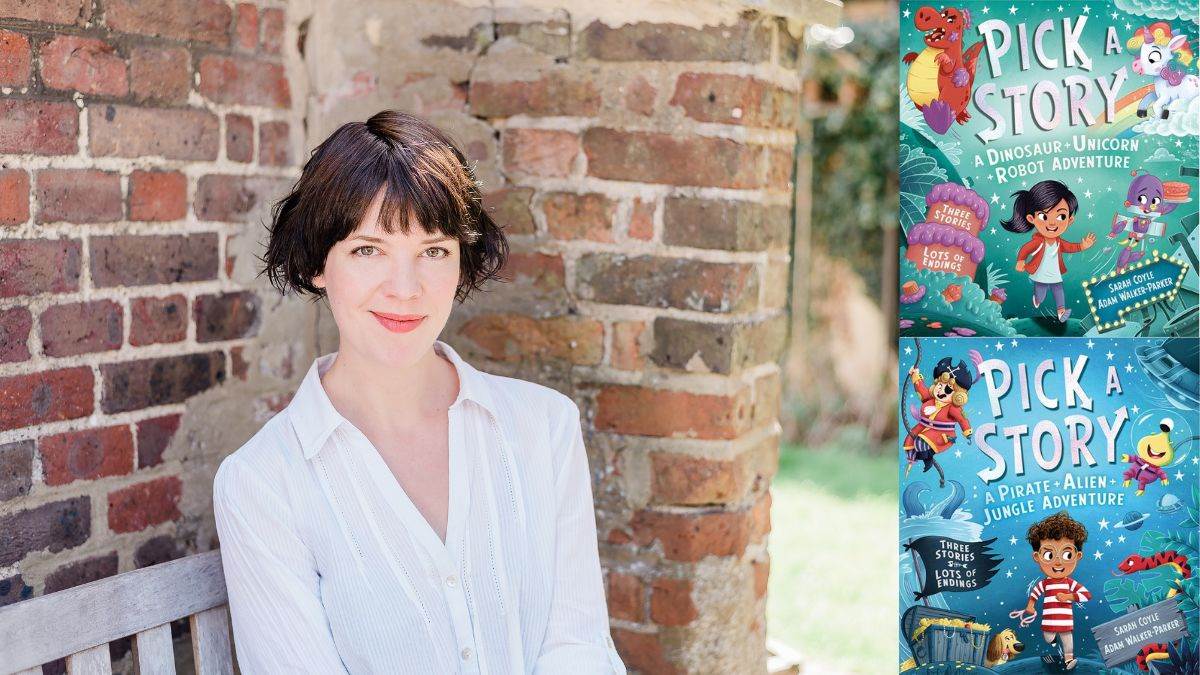Choice is the key to children reading for pleasure
Published on: 22 February 2023
Author Sarah Coyle is very keen on children having choice in what they read. Here, she explains why.

Ah, choice. Proof of free will. An exercise in self-expression. The ultimate lesson in how to live with and respect other people. Question: If I want an apple when Zara wants an orange, can we still be friends? I hate oranges. What does it mean that Zara likes oranges when I love Zara but hate oranges? Where does Zara end and I begin? HOW CAN THIS BE HAPPENING?! AM I NOT THE CENTRE OF THE UNIVERSE?! Answer: No, but it’s fine cos we both like hummus.
Being given choices is the first way we learn how to define ourselves. Choice encourages our creativity, harnesses our engagement and gives us a real sense of ownership. So naturally it’s a great way to get kids reading. Children have a tendency to cooperate more when empowered – like an employee who feels heard, even though management could frankly do better.
If we want children to read for pleasure we need to ensure that they’re reading, um, well, for pleasure. Choice is big when it comes to enjoyment. I’m all for difficult literature, but tell me I am only allowed to read Finnegans Wake and I’ll sneak my phone into the book to flick through unaffordable housing market fodder like the addict I am. But tell me I have half an hour’s free time to read whatever I like and, oh, wow. I seem to be wilfully researching ‘riverrun’* on my phone before victoriously moving on to a book I actually understand. See? Fun!
We know that kids who call themselves readers are the same kids who have choice over what they read. This can be tricky. Not everyone has shelves or even a shelf at home for books. This is why libraries and books from school are so essential. Access to literature is undeniably important for a thriving society and we must protect that access wherever it is threatened and encourage the use of it wherever we can. When children can get hold of books and are supported to feel confident to choose what they read, they may choose to read OVER OTHER ACTIVITIES. This is the jackpot. Once it begins it becomes hard to stop. You may find yourself yelling, “Hey kid, give the books a rest and pick up a console, why not!” Try not to do this.
Ask a passing child why they’re reading that book they’re holding and the answer will be revealing. If it’s because they’ve been asked to, or because they need to then that’s fine. But if it’s because they were excited by the front cover, or it’s by an author they love, or because they read the first sentence and just had to keep going, you’ll probably be able to tell by eyes, tone and body language. They chose to explore something, they were enabled to follow that impulse and the reading adventure is all the more thrilling as a result.
Kids know what they want to read. It’s usually that book shaped like the open jaws of a crocodile, or a lift-the-flap book with extra flaps. Let them pick them up. Make rituals out of choice to build anticipation before library visits or bedtime. Having your choice respected means you are far more likely to respect the choices of others too.
Choosing what happens within an adventure means kids get to deal with literary consequences which can sometimes mirror the actual real-life consequences. Or not. For example, in my book Pick a Story A Dinosaur + Unicorn + Robot Adventure the reader needs to decide what to do after triple custard pie-ing a T.Rex. This is nothing like the dilemma faced by someone whose sister took their biscuit and threw it on the floor and has now foolishly left her own biscuit in the near vicinity, but it does provide some context for decision making. Back in the olden days we used to chuck our kids out onto the streets so we could get on with cooking lumps of lard and scrubbing local pigeons. We tend to be more cautious these days, which is clearly a good thing, but we need to remember that practising decisions help us get better at making them.
I try to avoid presenting too many options at a time in my books. Choice overload is tantrum territory. Sometimes even the mightiest brains need simplicity. “I have spread five books out on your bedroom carpet. Would you like to choose two to read before it’s time to sleep?”
Between the ages of twelve and fifteen, aside from school stuff the only books I read were those Sweet Valley High books about a pair of American twins (essential details involved dress size, eye colour and extreme blondeness) and those Point Horror books (actually I’d probably snaffle one up right now). I had a library card. I used it. And there was never a sniff of judgement from the librarian as she stamped them. And look at me now! (Still) reading the first paragraph of Finnegans Wake!
Some say choice proves the existence of free will. Others say our behaviours are entirely unconscious and pre-determined and the notion that we make choices of any kind is delusional. To which I would say. Fair enough. But if it gets children reading, do it anyway. Let them have choice!
*The first word of Finnegan’s Wake. It refers to, among other things: the River Liffey in Dublin, the garden of Eden and Ragnarok (the biblical thing, not the thing with Tom Hiddleston).
Sarah Coyle is the author of Pick A Story A Dinosaur + Unicorn + Robot Adventure, the latest in the Pick A Story series.
Topics: Reading for pleasure, Features

